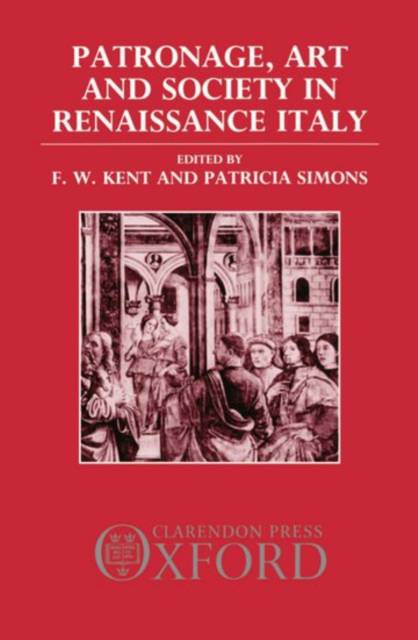
- Afhalen na 1 uur in een winkel met voorraad
- Gratis thuislevering in België vanaf € 30
- Ruim aanbod met 7 miljoen producten
- Afhalen na 1 uur in een winkel met voorraad
- Gratis thuislevering in België vanaf € 30
- Ruim aanbod met 7 miljoen producten
Zoeken
Patronage, Art, and Society in Renaissance Italy
€ 443,45
+ 886 punten
Omschrijving
Patronage, in its broadest sense, has been established as one of the dominant social processes of pre-industrial Europe. While it has been traditionally viewed simply as the context for extraordinary artistic creativity, patronage has more recently been examined by historians and art historians alike as a comprehensive system of patron-client structures which permeated society and social relations. Focusing specifically on the city of Florence, these essays explore the new understanding of Renaissance Italy as a 'patronage society, ' considering its implications for the study of art patronage and patron-client structures wherever they occur
Specificaties
Betrokkenen
- Uitgeverij:
Inhoud
- Aantal bladzijden:
- 350
- Taal:
- Engels
- Reeks:
Eigenschappen
- Productcode (EAN):
- 9780198219781
- Verschijningsdatum:
- 3/09/1987
- Uitvoering:
- Hardcover
- Formaat:
- Genaaid
- Afmetingen:
- 149 mm x 224 mm
- Gewicht:
- 616 g

Alleen bij Standaard Boekhandel
+ 886 punten op je klantenkaart van Standaard Boekhandel
Beoordelingen
We publiceren alleen reviews die voldoen aan de voorwaarden voor reviews. Bekijk onze voorwaarden voor reviews.










